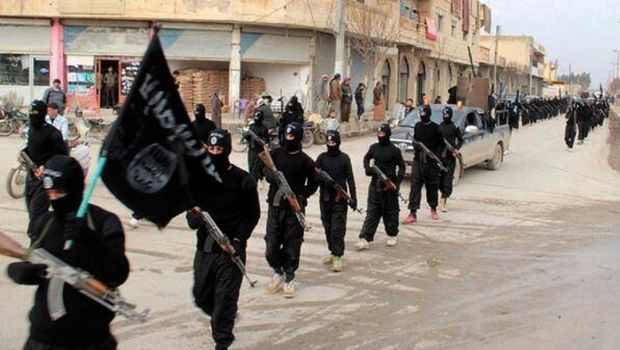Washington has finally been convinced of the merits of the Saudi vision to confront terrorism through a comprehensive strategy, rather than specific and temporary battles. The US has finally taken the critical step in its long war against terrorism; a war which has witnessed a ferocious and violent response from terrorist groups in Iraq, Syria, Lebanon, Yemen and Libya. However, this violence and ferociousness will only further increase so long as we delay the confrontation of the roots, and leaderships, of these terrorist groups.
If Washington had taken this step earlier—say just two years ago—then the Islamic State of Iraq and Syria (ISIS) would not have been able to expand and weaken the moderate Syrian opposition by taking over its territory. ISIS would not have been able to capture a third of Iraq. It would not have been able to terrorize innocents and minorities. It would not have been able to execute two American journalists. If Washington had taken this step earlier, then ISIS would not have been able to accumulate between 20,000 and 31,500 fighters in Iraq and Syria, according to the CIA itself.
While if the world had hesitated to confront this threat for much longer, we would have found ourselves—in just a year or two—facing an unimaginable disaster. Who knows, maybe this would have spread from the Middle East to Europe and even the US?
All the indicators that the West relies on to classify terrorist organization are seemingly flexible and not commensurate to dealing with the bogeyman that is now threatening the entire world. When you turn a blind eye to Hezbollah’s terrorism, its control of state institutions and its open challenge to the Lebanese military, this opens the door for more of the same. So we are seeing Yemen’s Houthis now knocking on the door of Sana’a, seeking to seize power and transform Yemen as a whole into a terrorist state. As for the rest of the world, it does not view the Houthis, nor Hezbollah, as terrorists at all.
The truth is that just as there is Sunni terrorism and extremism, there is also Shi’ite terrorism and extremism. This international alliance will not succeed unless it seeks to confront all forms of terrorism—whether Sunni or Shi’ite.
You cannot view ISIS as an imminent threat, and not believe that the same applies to the Al-Nusra Front, the Houthis or Hezbollah. You cannot fear the threat represented by Al-Qaeda, but not see the same threat from the extremist militias that are exporting terrorists to the rest of the world from Libya.
The complications that followed the Arab Spring did not just confuse ordinary citizens, politicians and Arab officials, it also confused the world’s greatest superpower. Otherwise, who could believe that the US—with its intelligence agencies and research centers—could miss a terrorist organization that may have started out small but soon grew to encompass a roster of tens of thousands of fighters?
The greatest complication is the double standards set by Washington in its classification of terrorist groups; there is no clear yardstick. Some organizations are classified as terrorist groups, while others not. This is something that was recognized by the US administration in the strategy that President Barack Obama announced on Wednesday, and which was later reconfirmed by Secretary of State John Kerry during his attendance of the Jeddah conference which sought to build a regional alliance against terrorism.
This US hesitance has become a clear feature of the Obama administration, raising doubts about Washington’s credibility and capability of combatting these terrorist groups. Today, with the formation of this international alliance to combat terrorism, and particularly ISIS, this may be the last chance for the US to save face and its prestige as the strongest country in the world. It is not permissible for the US to fail and return to its policy of hesitation in the middle of the road. If it does so, the US will lose all the remaining international respect that it enjoys.

Trackbacks/Pingbacks